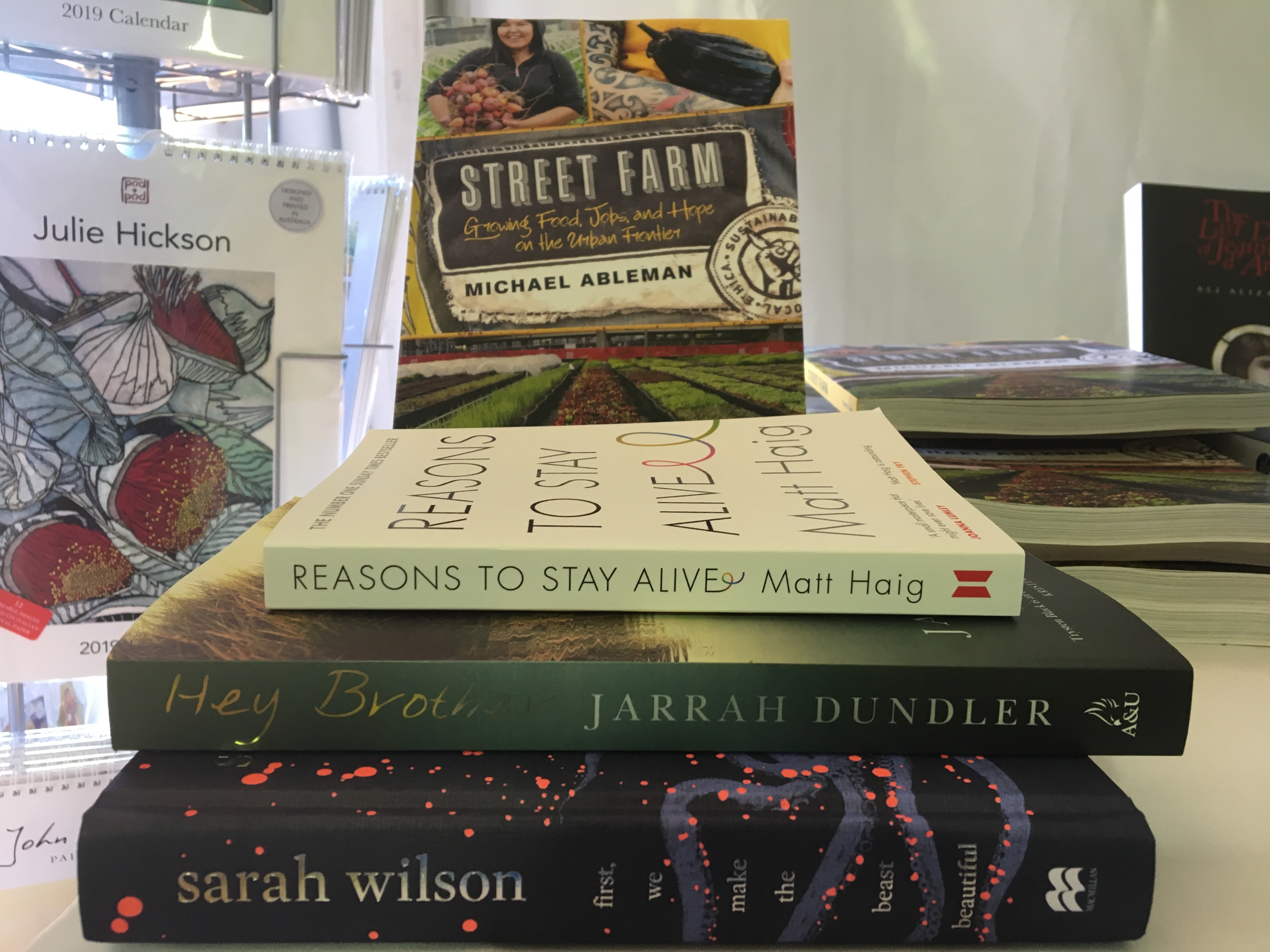Anxiety: is it just me?

We all experience anxiety to some degree, whether it is the ‘fair enough’ kind, where an anxious response is necessary and appropriate, or the more existential variety, an angst that is in your bones.
These categories of anxiety were put forward by Sarah Wilson, author of Making the Beast Beautiful.
‘I describe my anxiety as a type of “beige buzz”, an ever-present feeling which occasionally flares out of control, a feeling of being untethered from myself, a bit like Mr Squiggle on one of his space-walks,’ said Wilson, her eyes large behind pink-framed glasses.
Michael Ableman, urban farmer and author of Street Farm: Growing Food, Jobs and Hope on the Urban Frontier, grows food in urban areas to ‘re-tether people who have lost their way.’
‘I’m not a mental health professional,’ he said. ‘I’m a farmer who believes that growing food can save lives.’
Ableman means this literally – studies show that working with living soil has many positive health benefits, especially when combined with meaningful work in a community setting.
Staying Alive author Matt Haig was nodding as the others spoke. He has had his own experiences with anxiety, depression and a panic disorder.
‘In many ways, we’ve got cavemen hardware trying to run the software of a twenty-first society,’ he said. ‘We need to turn ourselves off and on again a few times.’
‘We’re wired to look outside of our cave to check for danger. Now, we look at the evening news or our twitter feed, and the next thing we know, we’re arguing with a guy from Texas and the whole weekend has disappeared.’
Jarrah Dundler, the Hey Brother author based in the Northern Rivers, described his ‘analysis paralysis’ as the process of getting stuck in a thinking loop, where no decisions can be made, and thoughts go around and around.
‘My depressive episodes are often preceded by extended periods of being stuck in my head, which will then spiral out of control.’
All the panellists agreed that much of our anxiety stems from the constant sense of being ‘on’ and from a disconnection to the natural world and each other.
Wilson reminded us how we used to have social structures that would protect us from ‘primal blow outs’ – we had the sabbath to rest, set bed times and work hours. In a single generation, all that has gone out of the window.
Panellists also described a sensitivity to social media as an issue. Like Haig and his twitter issues, Dundler finds technology a challenge to the management of his anxiety as well.
‘I’m not on Facebook because it gets too much for me – if I post, and it doesn’t get enough likes, I start to feel bad about myself. Even email is challenging – while I’m waiting for a reply, I’ll start spinning worst case scenarios in my head, and getting really obsessive about it.’
In many ways, anxiety is like the canary in the coal mine. It tells us that all is not right in the world, and there is work to be done. For the sensitive people who suffer debilitiating anxiety, this calling cannot be ignored.
Ableman sees his anxiety as a gift because it gets him out of bed to do good work: ‘If you are not heartbroken on a daily basis in 2018, then you are not awake.’
For Wilson, anxiety lets her know when something isn’t right; but harnessed, and with purpose, anxiety can create things of incredible beauty.
‘I can turn anxiety around and use it as a tool, as grist to the mill,’ she said.
Success and high achievement, Haig reminded us, don’t safeguard us from inadequacy. Both Winston Churchill and Benjamin Franklin are thought to have suffered from anxiety disorders.
Wilson quoted Sebastian Junger in his new book, Tribe, with a passage which seems to sum everything up: ‘Humans don’t mind hardship, in fact they thrive on it; what they mind is not feeling necessary. Modern society has perfected the art of making people not feel necessary. It’s time for that to end.’
Sara Runciman is a Southern Cross University Digital Media and Communications student.
